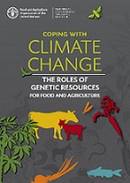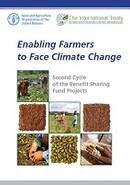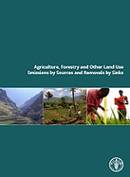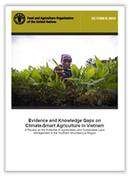Technical reports
The objective of this study is to enhance understanding of El Niño using FAO’s Agricultural Stress Index System (ASIS). Agriculture is one of the main sectors of the economy that could be severely affected by El Niño which can increase the prevalence of food insecurity and malnutrition.
Better understanding of the El Niño Phenomenon can improve the early warning capabilities of FAO and partners to trigger timely disaster risk reduction measures.
This publication summarizes the results of thematic studies that were prepared by FAO at the request of the Commission on Genetic Resources for Food and Agriculture. The studies look at the interactions between climate change and plant, animal, forest, aquatic, invertebrate and micro-organism genetic resources. Climate change poses new challenges to the management of the world’s genetic resources for food and agriculture. Genetic resources play a crucial role in food security, nutrition and livelihoods and in the provision of environmental services.
This report provides an overview of the characteristics and main activities of the projects that are being implemented as part of the second project portfolio of the Benefit-sharing Fund (BSF) of the International Treaty on Plant Genetic Resources for Food and Agriculture. The aim of this booklet is to give a general overview of the second project portfolio (22 projects currently implemented in 33 countries across Africa, Asia, Near East, Latin America and the Caribbean) as well as to share achievements, best practices and lessons learned during its midterm phase of implementation.
This FAO report provides comprehensive knowledge on the regional and sectoral distribution of anthropogenic greenhouse gas (GHG) emissions from agriculture, forestry and other land use (AFOLU) activities. The data can be freely accessed through the FAOSTAT Emissions database. The FAO GHG data are an integral part of the Working Group III contribution to the Fifth Assessment Report of the Intergovernmental Panel on Climate Change. The new analysis highlights the role of agriculture in climate change in relation to crop and livestock production, deforestation and peatland degradation.
This paper reviews site-specific research on the economic and climate impacts in the northern mountainous region (NMR) of Vietnam. It also looks at research on the barriers to the adoption of agroforestry and sustainable land management in the region. The aim is to identify knowledge gaps that need to be addressed so that evidence-based agricultural development policy can be implemented in the region.





